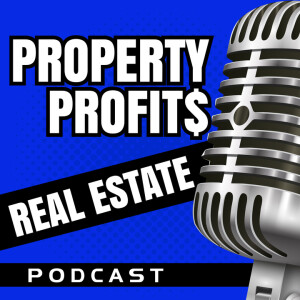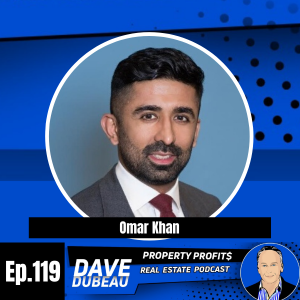
Property Profits Real Estate Podcast
Business:Investing

Learn about laws and regulations to take into consideration when you are an operator raising for capital in syndication, know more about the rules and regulations to take into account if you are an owner-operator raising capital for your own deals, and find out the key points to take into account when you are a Canadian investing in a US-based syndication entity.
Resources/Links
- BoardwalkWealth.com
Summary:
Omar Khan has advised on $4billion of M&A transactions in North America. He has a decade-plus experience across real estate and commodities. He is a global citizen who lived in Dubai, Toronto, Calgary, and Dallas.
In this episode, Omar discusses primarily the US foreign laws involved when raising capital for multifamily real estate through syndication in the US. Learn the right things to do in order to successfully raise capital while staying on the right side of the SEC.
Topics Covered:
01:19 – The real estate strategy he is focused on
02:57 – Being a global citizen – his thoughts about that
05:39 – What it’s like to do syndication in the US where regulations are concerned
07:41 – Taking a closer look at how multifamily deals work when it is being syndicated out in the US
10:33 – Key points you need to take note when you are a Canadian investing in a US-based syndication entity
13:49 – Rules and regulations for operators for raising capital in a syndication
15:26 – Rules and regulations for owner-operator raising capital for his own deals
Key Takeaways:
“It’s good to understand where other people come from because you can always pick up smaller things from people added to your toolkits, you become a more holistic, well-rounded person.” – Omar Khan
“In syndication, my average investor chips anywhere between 35 to 250,000 US dollars at a time, and some are more and some are less. And this way we raised the money. My group, I’m heading it, will take care of the debt and all of that stuff because our investors are basically getting passive returns.” – Omar Khan
“The thing that people don’t realize from a legal point of view isn’t necessarily that you can or can’t do the deal, that as a limited partner, you do have limited liability. If things go south, at worst, you can only lose the extent of the money you’ve invested. But when your name is on the loan documents, or when you’re the operator you have unlimited liability.” – Omar Khan
“The big advantage of investing in US real estate is the amount of tax write-offs you can get. It’s a fancy way of saying that I can be depositing cash in your bank account because of the return they’re generating. But on paper, I can be showing a loss because of the tax rules.” – Omar Khan
“There are specific tax breaks you get in the US that you don’t get in Canada. But it’s very important that if you are investing in an entity which is an LLC or limited liability company when you get these tax breaks, the CRA for the lack of better term does not allow you to take these tax breaks. They don’t view this entity as a pass-through entity.” – Omar Khan
“What you have to do as a Canadian is be ultra-vigilant and know that every time you’re investing in syndication you have to be investing in an entity which is an LLP, limited liability partnership.” – Omar Khan
“I’m not trying to be alarmist, what I’m trying to tell you is there are structures, rules, and laws in place. And typically, the easiest way around this is to deal directly with owner-operators, because they have some exemptions.” – Omar Khan
Connect with Omar Khan:
- BoardwalkWealth.com
- E: Omar@BoardwalkWealth.com
Connect with Dave Dubeau:
- Property Profits Podcast
- www.davedubeau.com
- www.investorattractiondemo.com
Enjoyed the Podcast?
Please subscribe on iTunes for updates
More Episodes
 2023-03-18
2023-03-18
 237
237
 2023-03-17
2023-03-17
 273
273
 2023-03-17
2023-03-17
 230
230
 2023-03-15
2023-03-15
 217
217
 2023-03-15
2023-03-15
 237
237
 2023-03-14
2023-03-14
 223
223
 2023-03-13
2023-03-13
 239
239
 2023-03-10
2023-03-10
 241
241
 2023-03-08
2023-03-08
 239
239
 2023-03-06
2023-03-06
 251
251
 2023-03-03
2023-03-03
 225
225
 2023-02-17
2023-02-17
 260
260
 2023-02-10
2023-02-10
 240
240
 2023-02-03
2023-02-03
 249
249
 2023-01-13
2023-01-13
 273
273
 2022-12-29
2022-12-29
 263
263
Create your
podcast in
minutes
- Full-featured podcast site
- Unlimited storage and bandwidth
- Comprehensive podcast stats
- Distribute to Apple Podcasts, Spotify, and more
- Make money with your podcast
It is Free
- Privacy Policy
- Cookie Policy
- Terms of Use
- Consent Preferences
- Copyright © 2015-2024 Podbean.com





